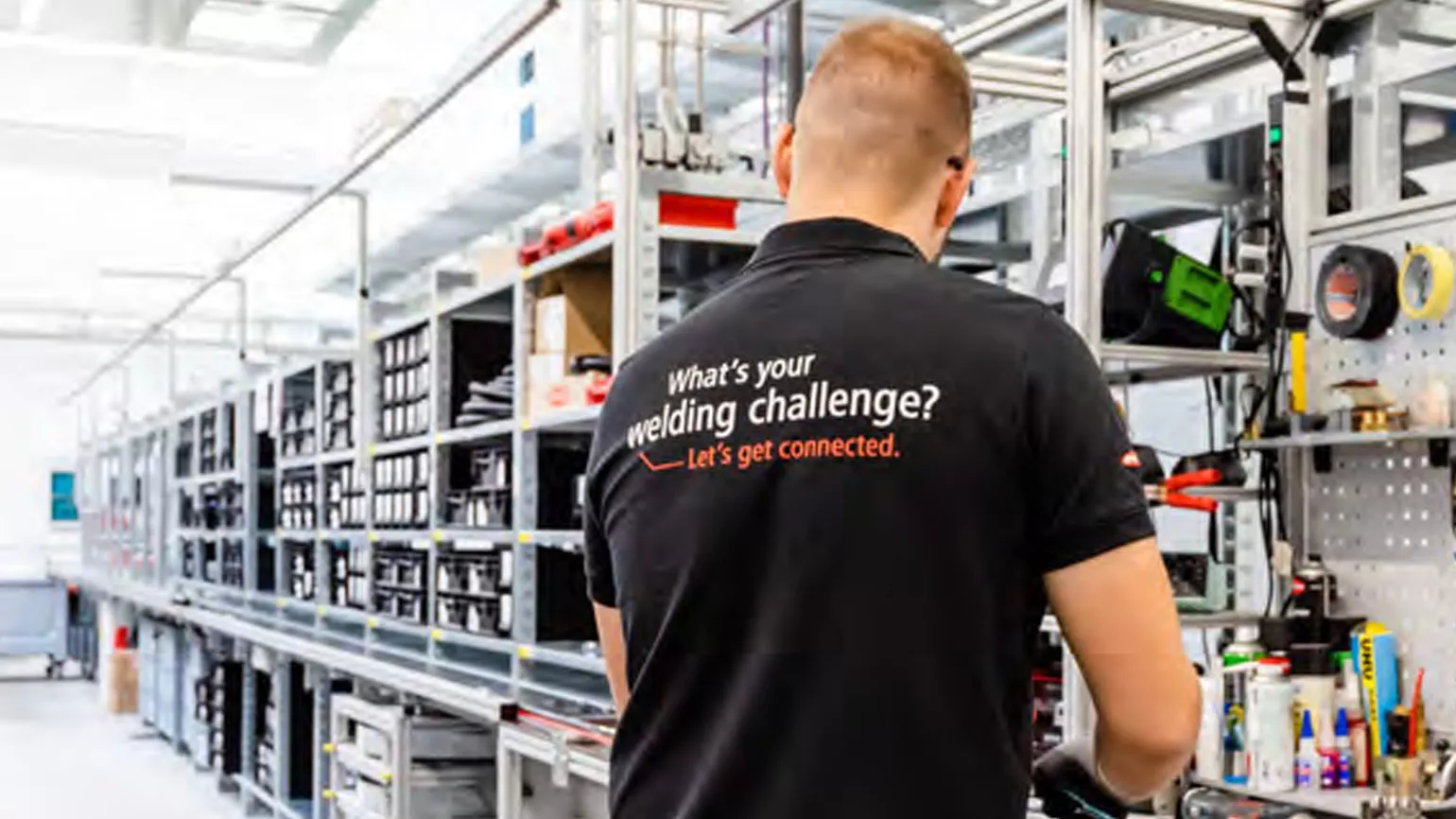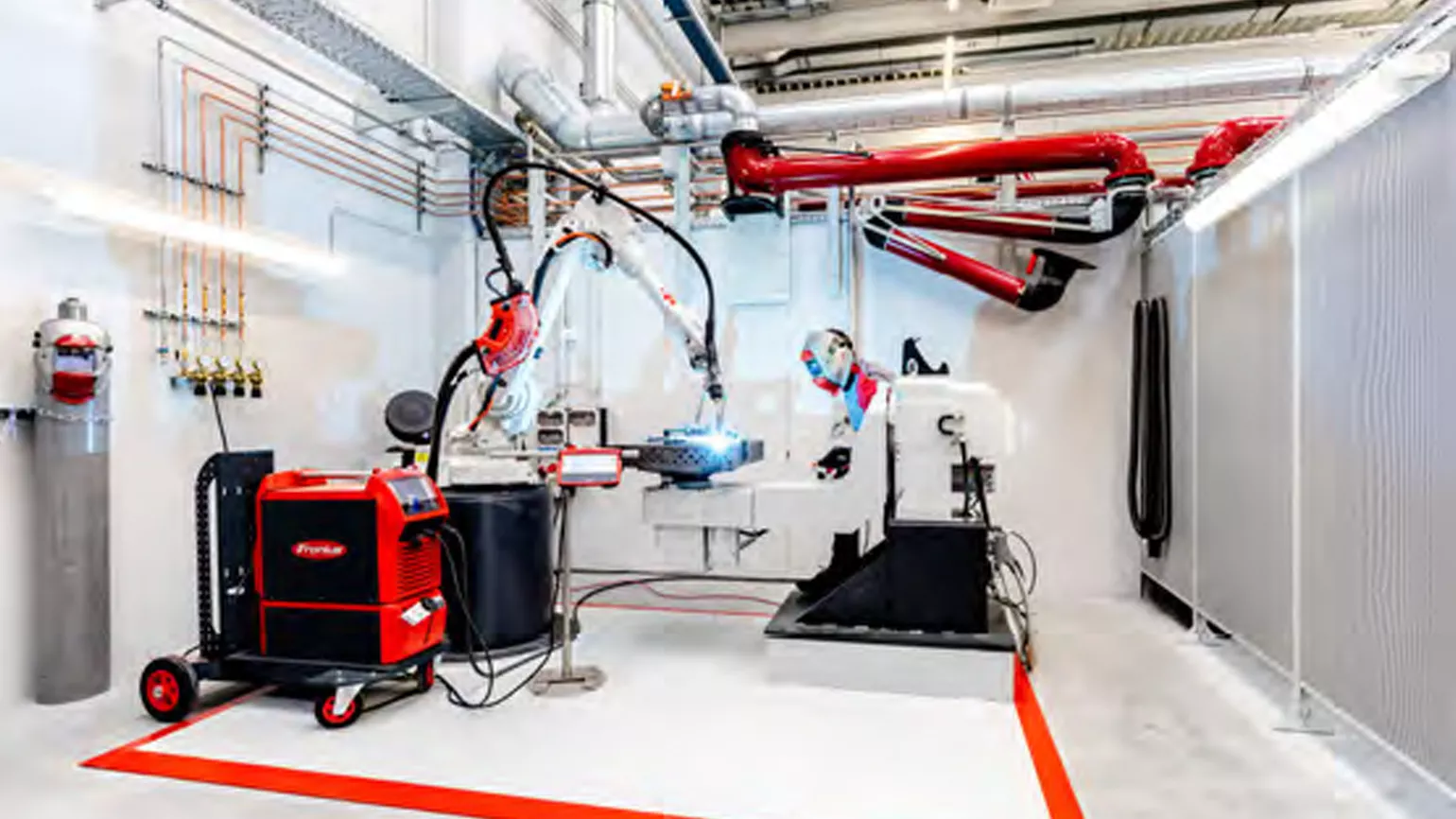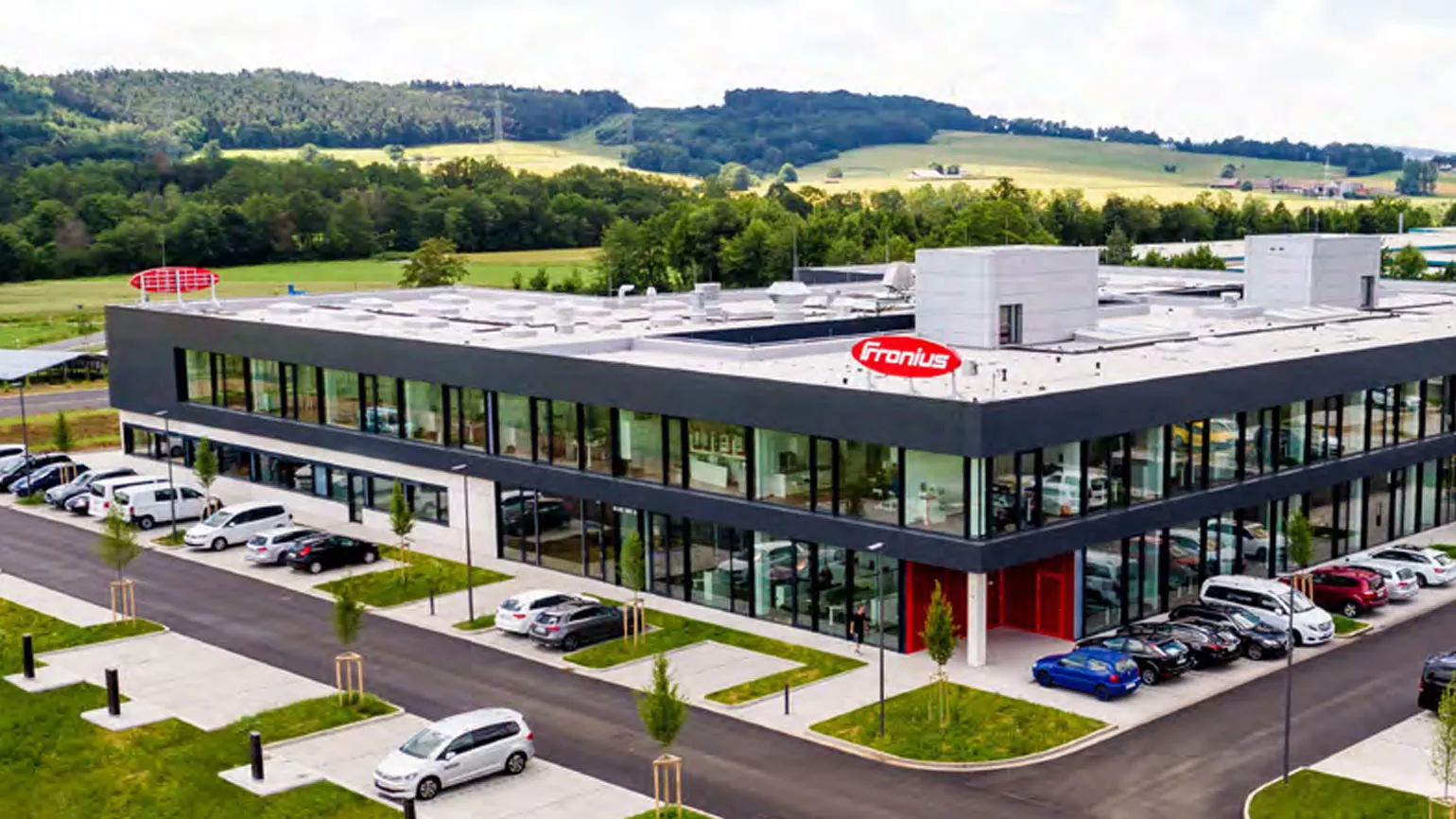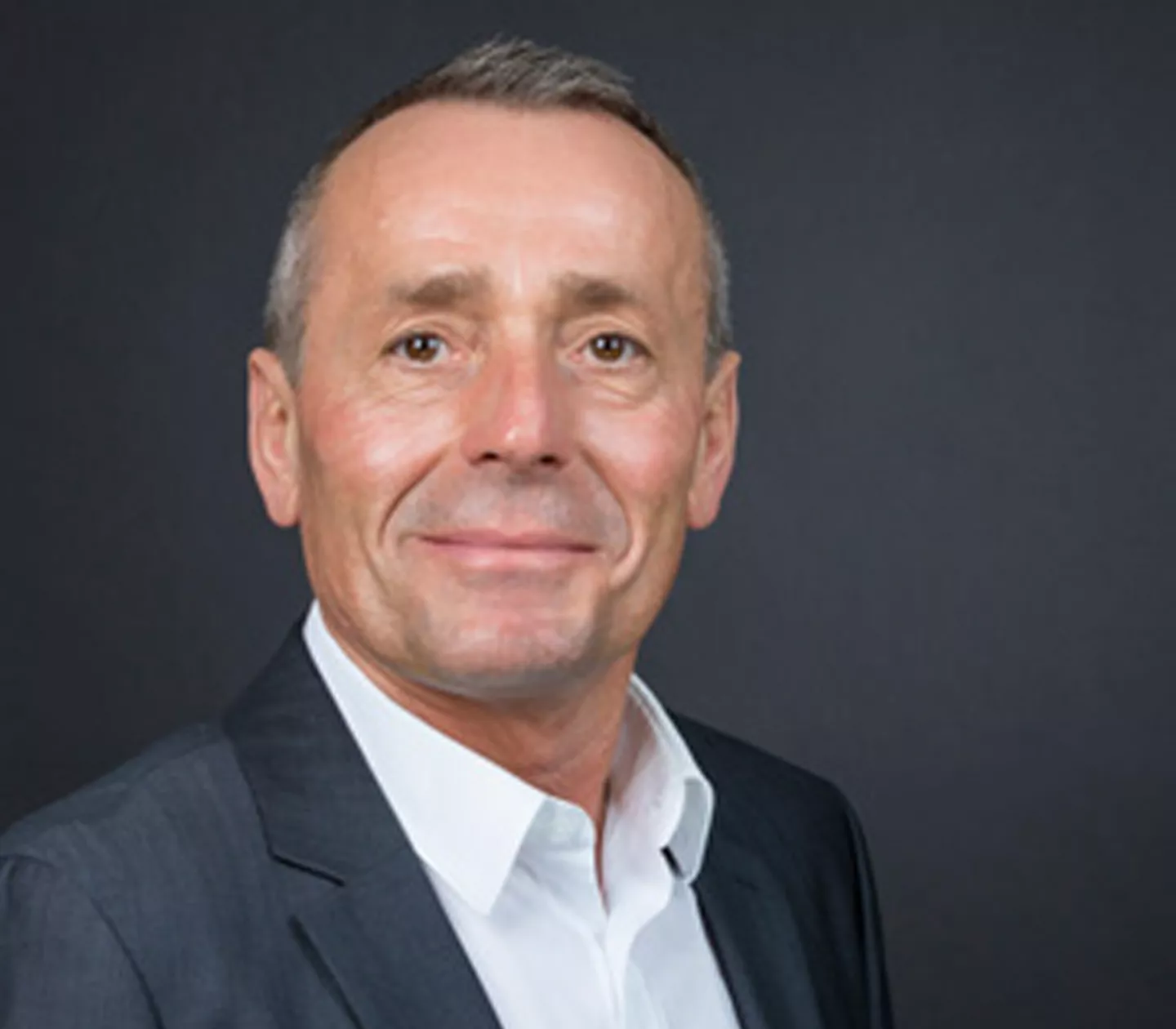Fronius GermanyA site portrait
Mr. Eisner, you joined Fronius not long after completing your apprenticeship as a universal welder at voestalpine (Vereinigte oberösterreichische Stahlwerke). What made you end up in Germany?
At the time, Klaus Fronius was looking to build up sales in Germany and set up a subsidiary. The plan’s intention was for us to become an established part of the manufacturing operations of the automotive companies based there. It was the obvious thing to do, of course, although in 1992, when we started out, we had no customer base whatsoever – we really were starting from scratch.
What was the initial spark that helped Fronius succeed?
Our breakthrough came with the Audi A8. The production of the aluminum car body was highly demanding from the welding point of view, and our technologies gave us a distinct edge over our competitors. This was the crux of the matter, and subsequently, also allowed Fronius to become established at VW, BMW, Daimler, and Opel. When VW set up factories in Mexico and Brazil, we suddenly had to deliver there as well, and then, so to speak, followed suit with the welding systems that were called on in Wolfsburg. Ultimately, the expansion of Fronius worldwide went hand in hand with the expansion of the German auto manufacturers.
What were the criteria for selecting the German Fronius branch offices?
To start with, we were merely represented at the headquarters of the major players: VW in Wolfsburg, Audi in Ingolstadt, BMW in Munich – and only by manageable on-site technology teams in each case. As we became increasingly established, however, we had to take up permanent residence. Strategically important points were chosen, to ensure close proximity to our customers’ production sites.
After many years of international activity and helping to set up new sites worldwide, you took over the Hengersberg Sales and Service Partner team in eastern Bavaria. What came next, both for you personally, and for Fronius?
As the regional sales manager in Hengersberg, I was also awarded overall leadership for the Bavarian region. I developed a specific plan, which included a regional service center, which I initially established in Hengersberg. Manual welding torches have been repaired here ever since, and we also carry out robotic welding trials there. On top of everything, the head office for more than 180 leased welding systems is also based here. This package proved to be really successful, and I was offered the chance to take on the overall leadership for Germany – a role I was happy to accept.
What did the future strategy look like?
Initially, I extended this successful system to the entire German market, dividing it, as it were, into three sales regions – South, North-East and West. There is now a service support center like this in each area, with the South-West even having two, when you count the Schönaich Sales and Service Partner team. Right at the top, not just with regard to the overall management, but also as a service support center, is our national headquarters in Neuhof-Dorfborn near Fulda in Hesse. There are four welding torch repair lines here, used mostly for servicing robotic welding torches. Neuhof is also equipped with outstanding application technology.

Fronius Germany
- The subsidiary with the greatest turnover in the Fronius Group (€52 million in welding technology, 2018)
- 242 employees, 146 in Perfect Welding (as at January 2020)
- 14 sites
- National headquarters in Neuhof-Dorfborn, central Germany
Fronius Germany, the Sales and Service Partner system pioneer
Sales and service partner teams, or VSP for short, have been mentioned a lot already. The VSP structure is a strong sales incentive for Fronius International: customers investing in a Fronius system also receive support from our teams. How is the VSP approach currently being implemented in Germany?
There have been some closures and some downsizing in past years, but as the managing director, I have again made it my mission to invest heavily in the VSP approach. To optimize the infrastructure, some sites were extensively developed by the purchase of a large number of properties in 2018. There was also large-scale investment in the personnel structure – Perfect Welding Germany now has 146 employees. This currently includes 13 active VSP teams, who also take on sales responsibilities.
I made it my business to ensure that our expert services were provided by specialists, meaning that our field sales teams are made up of talented application and service technicians. This has the advantage that they have detailed knowledge of the practical challenges of arc technology, know all about the hardware and are therefore able to sell exactly what it is that customers actually need.
Why do we need so many teams?
It is chiefly a matter of response times. And once again, a lot revolves around those customers who have automated their systems. If there is a failure here, and the production line is down, this is a really serious situation – and it can become an extremely expensive one! Some of our response times are written into the contract, guaranteeing that a relevant technician will be on site in less than six hours. Whether day or night, at weekends or on public holidays, is irrelevant. Regional proximity is indispensable for the teams, of course!
In addition to this, the teams offer a welding trials service – also at the customer’s premises. But for reasons of space, the project is based at our premises. You need the additional facilities, which then also have to be equipped with robots – our VSP sites have this infrastructure. Here too, the geographical proximity ensures that customers no longer have to drive all over the country for their test welds.
Can the competition also guarantee this?
The comprehensive VSP approach that we have set up for Germany is certainly unique in the world of welding. The intensive special support our VSP teams get from the national headquarters is ultimately crucial to their success. The overall structure, however, is extremely labor-intensive and therefore tremendously expensive. But Fronius is willing to invest in this infrastructure, as we are convinced that by selling this exceptional service, we are providing our customers with the ultimate in added value!
Our commercial success also reflects the fact that the project has been well-received and well-rewarded, and that it makes sense to use VSP teams for structured market development: since 2011, we have generated annual sales of between 40 and 45 million euros – in 2018, this reached 52 million for the first time!
Welding technology innovations
Fronius Germany and its wall-to-wall VSP structure within the Group, as well as in the welding sector in general, is therefore a true pioneer. But equally, the German market itself is regarded as a global trendsetter. Which welding technology innovations have you identified as having the potential to succeed on an international scale as well?
One thing is impossible to ignore: companies – and this increasingly includes medium-sized companies as well – have to automate. If they fail to do this, the company will have no future! Personnel costs must be reduced. The lack of specialists is also a growing problem in welding. It is increasingly coming down to collaborative robots: these work together with the welder in the immediate vicinity, so no longer have to be integrated in additional welding cells, and they are also extremely easy to operate – no in-depth specialist knowledge is required. This increases company productivity enormously, also making it possible to counter price pressure from abroad.
The use of cobots will inevitably increase. And this is exactly where we, as robotic welding system experts, see our opportunity. In the field of automation, we are already working with leading robot manufacturers to develop first-rate cobot welding systems, with which we will serve this growth market in future. We have also successfully created a comparatively low-cost introduction to this technology for our customers.
Along with the current or future technological aspects – which industries will Fronius Germany be focusing on?
The core business will still be in the automotive sector, our original industry, of course. However, it is no secret that this industry is facing fundamental change. We are therefore also investing a lot of energy in other industries, as also envisaged in the Fronius strategy. We are busy working for major construction machinery manufacturers, for example, as well as in the rail vehicle sector. SMEs from the metalworking industry complete the picture. Shipbuilding is a relatively new and exciting venture for us, and we are currently in the throes of establishing this in Germany.

Construction of a new national headquarters building which was occupied in May 2019
A total of 5,200 square meters is available to Neuhof-Dorfborn employees to discover the innovative technology and extensive know-how that enables them to provide outstanding customer support. Sustainability is a priority here – in summer, the primary source of energy to run the national headquarters is a free-standing PV system. The final touches to the sustainability picture are provided by numerous charging stations for electric cars and e-bikes.
Fronius and shipbuilding
Isn’t this something of an exception within the Group?
This is because we currently see the tremendous potential, especially in Germany. After a severe recession and the hemorrhage of numerous shipyards, the last few years have been dominated once again by revival and growth. We have 30 shipyards in the north of Germany with full order books until 2025. So we must do everything we can to ensure that Fronius occupies the best possible position here!
Any signs of success yet?
Absolutely! As far as our power sources are concerned, we are already registering relatively high unit numbers at Blohm + Voss and Meyer Werft – two large and long-established shipbuilders. I was also struck by the fact that welding in shipbuilding is quite brutal. Extremely confined spaces, heat, radiation, dirt, and grinding dust – fewer and fewer welders are willing to accept this. So by spring 2020, we will also be coming up with our automation approaches for shipbuilding. As this will enable us to counter a massive skills shortage, I am sure that our persuasive arguments will be listened to here. Word will get around. And consequently, Fronius technology should be able to win through in the shipbuilding sector over the medium to long term.
Fronius manual welding systems
Manual welding is still heavily involved in shipbuilding too. It is of course a well-known fact that Fronius delivers high quality in this area as well. However, we are accused of not really being competitive in our pricing, compared with the competition. How will we proceed in future, to perhaps ensure stronger representation in the small and medium-sized companies of the metalworking trades as well?
Let me make it clear, first of all, that manual welding is yet another area where we want to uphold our quality “at all costs”. However, we have to become cheaper. To begin with, we considered our discount and pricing policy in close consultation with Fronius International. Now appropriate measures have been taken so that from now on, we will appear fully competitive. But as a premium manufacturer and technology leader, our growth is still not determined solely by price – we have no intention of entering into that kind of competition.
Apart from pricing, what other options are available to you to ensure success in the manual welding systems market?
We have thought very carefully about the product portfolio – and there will be some relevant developments here too. Significant innovations in manual welding systems will be launched this year with the TransTig 170/210 series, as well as TransSteel Puls, to help us improve our market position still further.
We also envisage running various sales promotions, such as putting together discounted, complete “ready to weld” packages, including all the accessories. If price is no longer at the forefront of a sales pitch for once, manual welding will also experience serious growth. Because one thing is certain: at Fronius, quality, handling, and weld properties are in a league of their own!
Are Sales well-placed when it comes to manual welding?
I think that there is vast potential in our VSP teams alone. But to develop the market even more and achieve full market penetration, we want to increasingly rely on an indirect sales channel in future. The Partner and Partner Plus sales system is nothing new. However, we are now paying significantly more attention to this cooperation. We are strongly encouraging relevant specialist dealers to put the focus on selling manual welding systems. With this in mind, we want to considerably expand the network of participating dealers, to ensure that Fronius technology also becomes increasingly popular in small and medium-sized companies as well.


